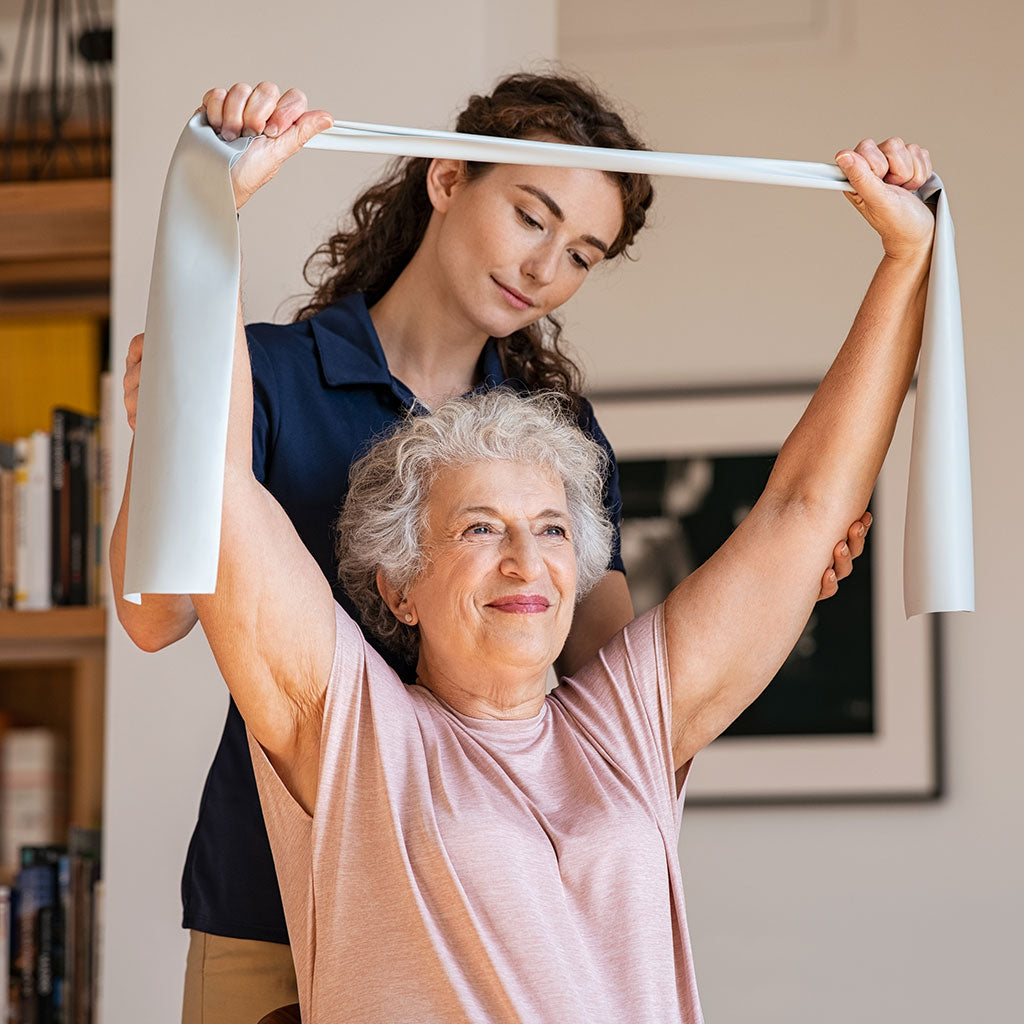Life's simplest tasks often form the foundation of our independence and quality of life. But what are activities of daily living beyond their basic definition, and how can an occupational therapist help?
Activities of Daily Living
Activities of daily living include everything from basic hygiene and cooking to more complex tasks like managing a household or maintaining relationships. From preparing breakfast to brushing your teeth or managing your finances, these essential self-care tasks are referred to as activities of daily living and are fundamental to maintaining independence and confidence.
For some, these tasks are second nature, but for others, particularly those with physical or learning disabilities, they can present significant challenges and impact not only day-to-day functionality but also emotional well-being and overall quality of life. For many people, tasks like showering or preparing meals are simply part of their daily routine and are often done without much thought.
However, for those living with physical limitations or learning disabilities, these tasks can be challenging, and the difficulty in completing them can lead to frustration and a sense of inadequacy. By approaching these challenges with understanding and care, we can uncover ways to support our loved ones who need it and help them regain confidence and control over their everyday lives.
The Daily Challenges Some People Face
It's not always easy to recognise the challenges others might face when performing activities of daily living. For instance, a person with a learning disability may struggle with memory and organisation, making it difficult to remember appointments, pay bills, or follow through on daily grooming routines.
Meanwhile, someone living with a physical condition such as cerebral palsy may face entirely different challenges. They may find tasks like dressing or holding objects difficult due to issues with movement and coordination. Such challenges can deeply affect a person's sense of self-reliance.
When someone struggles to process sensory inputs like sound, touch, or even body awareness (proprioception or kinesthesia), it can interfere with their ability to move comfortably through their day. Similarly, mental health concerns can reduce motivation to participate in daily activities or maintain a balanced lifestyle. However, with the right support, these challenges can be managed, leading to greater ease and confidence in daily life.
How Can an Occupational Therapist Help?
One of the most common questions we receive is how can an occupational therapist help individuals who are having difficulty with activities of daily living. The answer lies in their ability to identify and provide the right support needed to promote greater independence and enhance quality of life.
Occupational therapists are skilled at understanding how your goals and daily needs connect with your physical and mental abilities and the environment around you. By focusing on this relationship, they can create tailored strategies that address challenges and help you achieve greater independence and fulfilment in your daily life.
Assessment
The role of an occupational therapist is to enhance an individual's ability to handle daily tasks with greater independence and dignity. The process begins with a comprehensive assessment to identify the specific challenges a person may face. This involves looking at their routines, environment, and personal goals to develop a plan tailored to their unique needs.
Equipment Recommendations
Sometimes, the solution lies in small changes that can make a big difference. An example is the use of adaptive equipment. For someone struggling with fine motor skills, something as simple as a modified fork or spoon can make mealtime a more enjoyable part of daily living. If mobility is an issue, your occupational therapist may recommend installing grab rails or using a bath seat to ensure safety in the bathroom.
Lifestyle Alterations and Helpful Devices
Your occupational therapist may also suggest subtle but effective lifestyle adaptations. For example, establishing routines can help strengthen memory and create a sense of predictability that can be comforting and empowering. Visual aids, such as picture-based planners or step-by-step guides, can make it easier to stay organised and accomplish tasks independently.
Bridging Support and Collaboration
Helping someone overcome barriers to daily living often requires a collaborative approach, which is why occupational therapists usually bring in an occupational therapy assistant practitioner (OTAP). OTAPs provide hands-on support, whether it's for practising a new routine or managing a particularly challenging task to make the learning process smoother.
Occupational therapists also work with other professionals, such as social workers or healthcare providers, to ensure every aspect of your care is aligned with your goals. This collaborative effort ensures that the support you receive is cohesive and well-coordinated.
Everyday Tips to Stay on Track
While professional intervention can make a world of difference, there are small steps you can take daily to improve your independence and confidence.
- Keep a calendar or planner. It is a practical way to stay organised and remember important tasks. Pair this with a consistent routine to build habits and tackle tasks without feeling overwhelmed.
- Use visual prompts, like photographs or symbols, as gentle reminders for things like personal care, food safety, or even locking up at night.
- Carve out time to do something you enjoy, whether it's listening to music, stepping outside for fresh air, or catching up with a friend. These moments of joy can have a ripple effect on your overall well-being and help you approach your daily tasks with a more positive outlook.
- Establish a consistent bedtime routine to ensure you're well-rested and ready to take on the day ahead. Minimise distractions like mobile phones before bed to help create a peaceful environment for better rest. A good day often begins with a good night's sleep.
- Most importantly, be kind to yourself. No matter how small, progress deserves celebration. And when you face setbacks, remind yourself that challenges are part of the journey and that support is always within reach.
Moving Forward
Knowing what activities of daily living are and understanding how an occupational therapist can help provide a starting point for building independence and improving quality of life. If you or a loved one is struggling with activities of daily living, don't hesitate to reach out.
Whether it's improving one task or many, our team is here to guide and encourage you every step of the way. Together, we can create a personalised plan that builds on strengths and addresses challenges so you can live with greater ease and confidence.
























